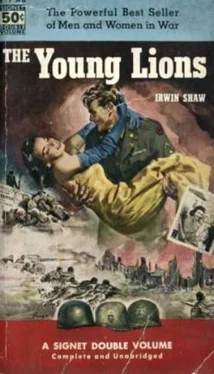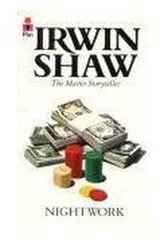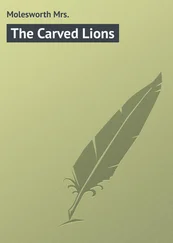Irwin Shaw - The Young Lions
Здесь есть возможность читать онлайн «Irwin Shaw - The Young Lions» весь текст электронной книги совершенно бесплатно (целиком полную версию без сокращений). В некоторых случаях можно слушать аудио, скачать через торрент в формате fb2 и присутствует краткое содержание. Жанр: Классическая проза, на английском языке. Описание произведения, (предисловие) а так же отзывы посетителей доступны на портале библиотеки ЛибКат.
- Название:The Young Lions
- Автор:
- Жанр:
- Год:неизвестен
- ISBN:нет данных
- Рейтинг книги:4 / 5. Голосов: 1
-
Избранное:Добавить в избранное
- Отзывы:
-
Ваша оценка:
- 80
- 1
- 2
- 3
- 4
- 5
The Young Lions: краткое содержание, описание и аннотация
Предлагаем к чтению аннотацию, описание, краткое содержание или предисловие (зависит от того, что написал сам автор книги «The Young Lions»). Если вы не нашли необходимую информацию о книге — напишите в комментариях, мы постараемся отыскать её.
The Young Lions — читать онлайн бесплатно полную книгу (весь текст) целиком
Ниже представлен текст книги, разбитый по страницам. Система сохранения места последней прочитанной страницы, позволяет с удобством читать онлайн бесплатно книгу «The Young Lions», без необходимости каждый раз заново искать на чём Вы остановились. Поставьте закладку, и сможете в любой момент перейти на страницу, на которой закончили чтение.
Интервал:
Закладка:
Noah didn't feel like eating. From time to time he stared at Rickett, lying dead five feet away from him. Rickett's eyes were wide open and there was a bloody grimace of anger and command on his face. His throat was badly torn open under the raw mouth. Noah tried to convince himself that he was pleased with the sight of his dead enemy, but he found it was impossible. Rickett, by the act of dying, had changed from the brutal sergeant, the vicious bully, the foul-mouthed killer, and had become another dead American, a lost friend, a vanished ally… Noah shook his head and turned away from staring at Rickett.
Lieutenant Green was coming along the ditch again, and with him was a tall man, who walked slowly, peering thoughtfully at the resting, stubborn men in the ditch. When Green and the other man got closer, Burnecker said, "Holy God, two stars."
Noah sat up and stared. He had never been this close to a Major-General in all his months in the Army.
"General Emerson," Burnecker whispered nervously. "What the hell is he doing here? Why doesn't he go home?"
Suddenly, with sharp agility, the General leaped up the side of the embankment and stood at the top, in full view of the Germans. He walked slowly along the edge, talking down at the men in the ditch, who stared up at him numbly. He had a pistol in a holster, and he carried a short swagger-stick under one arm.
Impossible, Noah thought, it must be somebody dressed up like a General. Green is playing a trick on us.
The machine-guns were going again, but the General did not change the tempo of his movements. He walked smoothly and easily, like a trained athlete, talking down into the ditch as he crossed in front of the men.
"All right, Boys," Noah heard him say as he approached, and the voice was calm, friendly, not loud. "Up we go now, Boys. We can't stay here all day. Up we go. We're holding up the whole line here and we've got to move now. Just up to the next row of hedges, Boys; that's all I'm asking of you. Come on, Son, you can't stay down there…"
As he watched, Noah saw the General's left hand jerk, and blood begin to drop down from the wrist. There was just the slightest twist of the General's mouth, and then he continued talking in the same quiet but somehow piercing tone, grasping the swagger-stick more tightly. He stopped in front of Noah and Burnecker. "All right, Boys," he was saying kindly, "just walk on up here…"
Noah stared at him. The General's face was long and sad and handsome, the kind of face you might expect to see on a scientist or a doctor, thin, intellectual, quiet. Looking at his face confused Noah, made him feel as though the Army had fooled him all along. Looking at the sorrowful, courageous face, he suddenly felt that it was intolerable that he, Noah, could refuse a man like that anything.
He moved and, at the same moment, he felt Burnecker move beside him. A little, dry, appreciative smile momentarily wrinkled the General's mouth. "That's it, Boys," he said. He patted Noah's shoulder. Noah and Burnecker ran forward fifteen yards and dropped into a hole for cover.
Noah looked back. The General was still standing on the brink of the ditch, although the fire was very heavy now, and men all along the line were leaping up and advancing in short bursts across the field.
Generals, he thought hazily, as he turned back towards the enemy, he had never known what Generals were for, before this…
He and Burnecker leaped out of their hole, just as two more men dived into it. The Company, or the half Company that was left, was moving at last.
Twenty minutes later they had reached the line of hedge from which the enemy machine-guns had been firing. Mortars had finally found the range and had destroyed one of the nests in a corner of the field, and the other sections had pulled out before Noah and the Company reached them.
Wearily, Noah kneeled by the side of the cleverly concealed, heavily sandbagged position, now blown apart to reveal three Germans dead at their wrecked gun. One of the Germans was still kneeling behind it. Burnecker reached down with his boot and shoved at the kneeling dead man. The German rocked gently, then fell over on his side.
Noah turned away and drank a little water from his canteen. His throat was brassy with thirst. He hadn't fired his rifle all day, but his arms and shoulders ached as though he had caught the recoil a hundred times.
He looked out through the hedge. Three hundred yards away, across the usual field of bomb-holes and dead cows, was another thick hedge, and machine-gun fire was coming from there. He sighed as he saw Lieutenant Green walking towards him, urging the men out once more. He wondered hazily what had happened to the General. Then he and Burnecker started out again.
Noah was hit before they had advanced three yards, and Burnecker dragged him back behind the safety of the hedge.
A first-aid man came up with surprising speed. Noah had lost a great deal of blood very quickly and he felt cold and remote and the first-aid man's face swam above him dreamily. The man was a little Greek with crossed eyes and a dapper moustache, and the strange dark eyes and the thin moustache floated independently in the air as the man gave him a transfusion, with Burnecker helping. Shock, Noah remembered fuzzily. In the last war a man would be hit and feel perfectly all right and ask for a cigarette – it had been in a magazine somewhere – and ten minutes later he would be dead. But it was different in this war. This was a high-class, up-to-the-minute type of war, with blood to spare. The cross-eyed Greek gave him some morphine, too. That was very thoughtful of him, above and beyond the call of the Medical Corps… Strange, to be so fond of a cross-eyed man who used to be a short-order cook in a diner in Scranton, Pennsylvania. Ham and eggs, hamburger, canned soup. Now it was canned blood. Ackerman, out of Odessa, and Markos, out of Athens, linked by a tube of preserved blood somewhere near the reduced city of St L6, in the province of Normandy, on a summer's day, with an Iowa farmer named Burnecker crouched beside them, weeping, weeping…
They lifted Noah on to a stretcher and started to carry him back. Noah raised his head. Seated on the ground, with his helmet off, abandoned to grief, sat Johnny Burnecker, weeping for his friend. Noah tried to call out to him, to assure him that all in the end would turn out well, but no sound came from his throat. He dropped his head and closed his eyes, as he was borne away, because he could no longer bear to see his deserted friend.
CHAPTER TWENTY-NINE
THE dead horses were beginning to bloat and smell in the strong summer sun. The odour mingled with the acrid, medicinal smell of the ruptured ambulance convoy that lay, a jumble of overturned wagons, spilled pungent powders, scattered heaps of papers, torn and useless red crosses, along the road. The dead and the wounded had been removed, but otherwise the convoy remained, curving up the long hill, just as it had been left after the dive-bombers had passed over it.
Christian went by it slowly, on foot, still carrying his Schmeisser, in a straggling group of perhaps twenty men, none of whom was known to him. He had picked them up early in the morning, after he had become separated from the hastily organized platoon to which he had been posted three days before. The platoon, he was sure, had surrendered during the night. Christian felt a sombre sense of relief that he was no longer responsible for them or their actions.
Looking at the dead convoy, sadly marked with the red crosses that had done no good, he was overwhelmed with a sense of anger and despair. Anger at the swooping, 400-mile-an-hour young airmen who had come upon the slow-moving wagons toiling up the hill with their load of broken and dying men and had, in the wanton fury of destruction, rowelled it with their machine-guns and rockets.
Читать дальшеИнтервал:
Закладка:
Похожие книги на «The Young Lions»
Представляем Вашему вниманию похожие книги на «The Young Lions» списком для выбора. Мы отобрали схожую по названию и смыслу литературу в надежде предоставить читателям больше вариантов отыскать новые, интересные, ещё непрочитанные произведения.
Обсуждение, отзывы о книге «The Young Lions» и просто собственные мнения читателей. Оставьте ваши комментарии, напишите, что Вы думаете о произведении, его смысле или главных героях. Укажите что конкретно понравилось, а что нет, и почему Вы так считаете.











